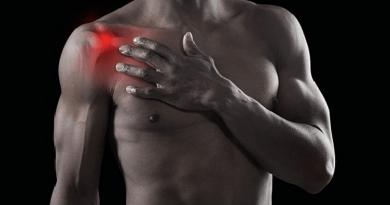How Your Dentist Can Help You Sleep Better
Sleep is essential for overall well-being, affecting everything from mood and mental health to immune function and cognitive performance. While many people are familiar with the importance of sleep, fewer realise that their dentist can play a crucial role in diagnosing and treating sleep-related issues. In particular, conditions like sleep apnea, bruxism (teeth grinding), and snoring can be closely tied to oral health and often require intervention from a dental professional.
The Importance of Sleep for Oral Health
Before diving into how dental problems can affect sleep, it’s important to understand the role sleep plays in maintaining good oral health. During sleep, the body engages in numerous repair and recovery processes, including repairing tissues and strengthening the immune system. Adequate sleep helps the body manage inflammation and protect against infections, including gum disease.
Conversely, poor sleep or chronic sleep disorders can weaken the immune system, making it more difficult for the body to fight off bacteria that cause gum disease or tooth decay. Lack of sleep is also linked to higher levels of the stress hormone cortisol, which can exacerbate inflammation in the gums and contribute to oral health issues.
The Role of Dentists in Sleep Health
Dentists are often the first healthcare professionals to notice signs of sleep disorders during routine exams. For instance, worn teeth or TMJ pain can indicate bruxism, while dry mouth or enlarged tonsils may suggest sleep apnea. By identifying these signs early, dentists can refer patients to sleep specialists for further evaluation or provide effective treatments to manage the condition.
The esteemed London-based cosmetic dentist Dr. Sahil Patel of Marylebone Smile Clinic emphasises the importance of regular dental check-ups: “During routine exams, we look for signs that a patient may not be sleeping well. Whether it’s grinding their teeth or snoring, addressing these issues early on can lead to better sleep and improved quality of life.”
“Many people don’t realise how closely connected dental health and sleep quality are,” says Dr. Patel. “As dentists, we play a key role in diagnosing and treating conditions like sleep apnea and bruxism, which can have a profound effect on a person’s overall health and well-being. A simple oral appliance can make a world of difference for patients who struggle with poor sleep.”
Common Sleep-Related Dental Issues
Many people are unaware that their dentist can help with sleep-related issues. Certain conditions that affect sleep quality often stem from problems with the mouth, jaw, or airway, making dental intervention a key component of treatment. Below are some of the most common sleep-related dental issues.
Sleep Apnea
Obstructive sleep apnea (OSA) is a serious sleep disorder in which the airway becomes partially or completely blocked during sleep, causing repeated interruptions in breathing. These interruptions can lead to snoring, gasping, or choking sounds, and they prevent the person from reaching the deep stages of restorative sleep.
While sleep apnea is typically diagnosed through a sleep study, dentists are often the first healthcare professionals to notice the signs of the condition. During a routine dental exam, your dentist may notice symptoms such as:
Grinding or clenching: Many people with sleep apnea grind or clench their teeth during sleep, a condition known as bruxism.
Worn teeth: Bruxism can cause tooth wear, flattening the chewing surfaces of the teeth over time.
Dry mouth: Mouth breathing due to sleep apnea can lead to dry mouth, increasing the risk of cavities and gum disease.
Enlarged tongue or tonsils: These can contribute to airway obstruction during sleep.
If your dentist suspects you may have sleep apnea, they can refer you to a sleep specialist for a formal diagnosis. Treatment for sleep apnea often involves using a continuous positive airway pressure (CPAP) machine, but dental appliances such as mandibular advancement devices (MADs) can also be highly effective. These oral appliances work by repositioning the lower jaw and tongue to keep the airway open during sleep, reducing snoring and breathing interruptions.
Bruxism (Teeth Grinding)
Bruxism, or teeth grinding, is another common condition that affects sleep quality. Many people grind or clench their teeth during sleep without even realising it, and the condition can have serious consequences for oral health if left untreated. Bruxism can cause:
Tooth wear: Over time, grinding can wear down the enamel, making teeth more vulnerable to decay and sensitivity.
Jaw pain: Constant clenching of the jaw can lead to temporomandibular joint (TMJ) pain, causing discomfort when chewing or speaking.
Headaches: Morning headaches are a common symptom of sleep bruxism.
Dentists can treat bruxism by providing custom-made night guards. These mouthguards fit over the teeth and act as a barrier between the upper and lower teeth, preventing damage from grinding and relieving pressure on the jaw.
Snoring
Snoring is often a symptom of sleep apnea but can also occur on its own due to partial airway obstruction. When the tissues in the throat relax during sleep, they can vibrate as air passes through, causing the sound of snoring. While occasional snoring may not be a serious issue, chronic snoring can disrupt sleep for both the individual and their partner.
Dentists can help reduce snoring by creating oral appliances that keep the airway open. Similar to devices used to treat sleep apnea, these appliances reposition the jaw and tongue to prevent airway collapse, allowing for smoother breathing and less vibration of the throat tissues.
Dental Treatments for Sleep Disorders
Dentistry offers a range of treatments to address sleep-related conditions like sleep apnea, bruxism, and snoring. These treatments are non-invasive and can significantly improve sleep quality, allowing individuals to wake up feeling rested and refreshed.
Mandibular Advancement Devices (MADs)
Mandibular advancement devices are one of the most common treatments for mild to moderate sleep apnea and chronic snoring. These custom-fitted oral appliances work by moving the lower jaw forward, which helps to keep the airway open during sleep. MADs are an excellent option for individuals who cannot tolerate CPAP machines or prefer a less bulky treatment.
Night Guards for Bruxism
For individuals who grind or clench their teeth at night, custom-made night guards can be highly effective. These guards prevent tooth wear and protect the enamel from damage while also reducing the risk of jaw pain and TMJ disorders. Night guards are made to fit the patient’s mouth perfectly, ensuring comfort and effectiveness.
Orthodontic Treatment
In some cases, misalignment of the teeth or jaw can contribute to airway obstruction and snoring. Orthodontic treatments, such as braces or clear aligners, can correct these misalignments, helping to improve airflow and reduce snoring. Orthodontics can also help alleviate TMJ disorders caused by bruxism, improving overall sleep quality.
Surgical Solutions
For severe cases of sleep apnea that cannot be managed with oral appliances or CPAP, surgery may be necessary. Dentists and oral surgeons can collaborate with sleep specialists to determine if surgical intervention is needed to remove obstructions in the airway, such as enlarged tonsils or excess tissue.
Tips for Improving Sleep Health with Good Oral Care
Maintaining good oral hygiene and working with your dentist to address any sleep-related issues can have a positive impact on both your dental and overall health. Here are a few tips to keep in mind:
Keep regular dental check-ups: Your dentist can identify early signs of sleep disorders, so regular visits are essential.
Consider an oral appliance: If you suffer from sleep apnea or snoring, ask your dentist about mandibular advancement devices or other oral appliances that can help.
Address bruxism: If you wake up with headaches or jaw pain, talk to your dentist about getting a custom night guard to protect your teeth and relieve pressure on your jaw.
Stay hydrated: Dry mouth can worsen snoring and increase the risk of cavities, so be sure to drink plenty of water throughout the day.
Conclusion: Dentistry and Sleep Health Are Closely Connected
Sleep is critical to your overall health, and dental issues like sleep apnea, bruxism, and snoring can severely disrupt your ability to get the rest you need. By recognising the connection between oral health and sleep disorders, dentists play a crucial role in identifying and treating these conditions.
Whether it’s through custom oral appliances like mandibular advancement devices or night guards, or simply offering advice on better sleep hygiene, your dentist can help you achieve a better night’s sleep. For those considering cosmetic dental treatments like veneers London, addressing any underlying sleep issues is essential for maintaining long-term dental health and well-being.
If you’re struggling with sleep issues or experiencing symptoms like teeth grinding, snoring, or morning headaches, it may be time to talk to your dentist about how they can help you improve both your sleep and your smile.




